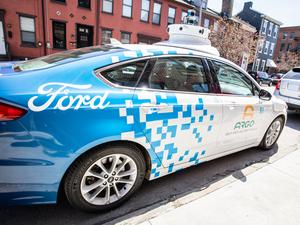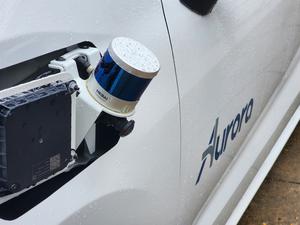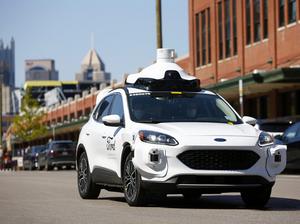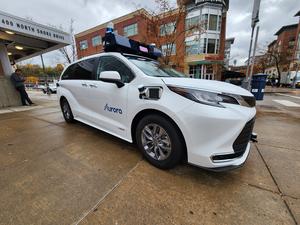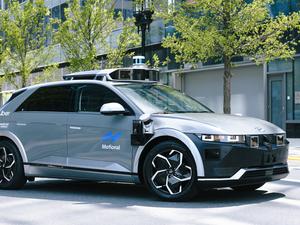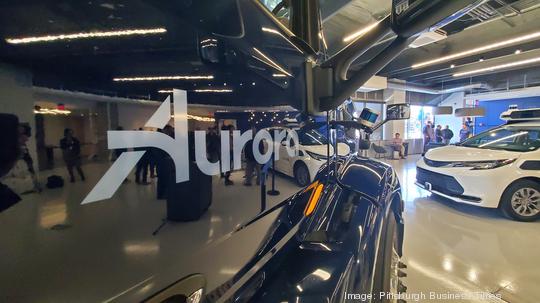
Strip District-based autonomous vehicle company Aurora Innovation Inc. is reaffirming that it has enough cash on-hand to keep it running until the commercial deployment of its self-driving technology for long-haul trucking in 2024. It's a message that's being signaled after last month's shuttering of Pittsburgh-based AV startup Argo AI, which likely ran out of money after its main backers — Ford Motor Co. and Volkswagen AG — announced they would no longer fund the firm following its inability to attract new investors.
On Wednesday during the company's Q3 earnings call — its fourth since becoming a public company almost a year ago to the day — Aurora (NASDAQ: AUR) Chief Financial Officer Richard Tame said the company has over $1.2 billion in cash and short-term investment reserves, almost all of which came from its IPO. Its operating expenses in Q3 reached $203 million when including stock-based compensation awards of $37 million. Aurora spent the bulk of its operating expenses, about $139 million, on research and development-related costs, which Tame said is primarily a figure that is comprised of personnel costs.
Aurora also received about $2.9 million in collaboration revenue during the quarter from Toyota Motor Corp., bringing its cumulative year-to-date total from the Japanese automaker to $148 million. This quarter marked the last phase of Toyota's funding agreement with Aurora, the two of which partnered for the testing and building of autonomous ride-hailing vehicles set to launch following the rollout of Aurora's autonomous trucking technology.
Overall, the company posted a $198 million net loss for the quarter.
"We ended the third quarter with a very strong balance sheet," Tame said. "We expect this cash runway to fund Aurora through mid-2024, enabling us to continue to develop the Aurora Driver for commercial deployment at scale."
It was during the company's last earnings call that it announced that the deployment timeline of the Aurora Driver — the company's name for its self-driving technology consisting of sensors, computers and other elements — had been pushed back. Aurora previously envisioned shipping that product by the end of 2023 and Aurora CEO and Co-Founder Chris Urmson cited supply chain-related constraints and other challenges facing the trucking industry more broadly as some of the reasons for the delay.
During Wednesday's call, Urmson gave thought to Argo's shuttering and the broader ramifications its closure might have on the AV industry.
"As we think about the future here, what we're seeing is just the natural evolution of any industry," Urmson said. "And so like any other space, you're going to see a proliferation of companies to begin, and I think that's a very healthy part of building the ecosystem. And then over time, those of us who have the team, have the technology and have the ability to execute are going to be positioned for success. We look at Argo, as I said in my post about this, these folks are aligned on the mission with us and many of them are friends so we're a little sad to see that happen but we think it's just a natural course of business for us."
Urmson then said Aurora's value as an independent company is a "stark relief" for it, likely alluding to it not being beholden to the whims of majority-controlling investors.
After-hours trading of Aurora's stock on Wednesday had a gain of about 7.5% at $2.02 per share compared to the day's close at $1.88 per share, down 9.6% from the start of the day. Aurora's stock over the past year has fallen by about 80% compared to the Nasdaq Composite Index's decline of about 32% during the same time period.
